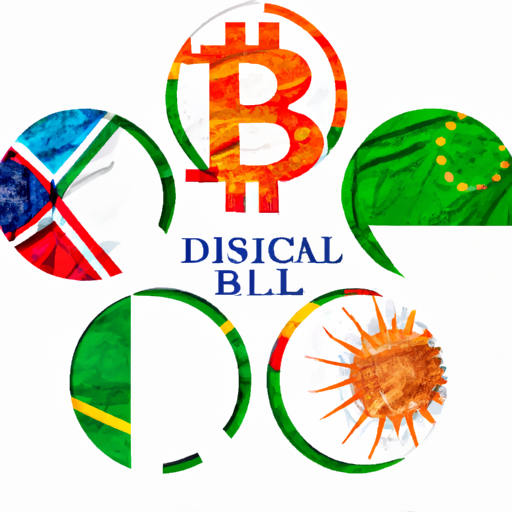The BRICS Call for De-Dollarization: A Futile Fantasy
Expanding BRICS: A Coalition in a World of Tradition
At their most recent gathering in Johannesburg, South Africa, the BRICS nations, consisting of Brazil, Russia, India, China, and South Africa, made a historic decision to admit five new members in the coming year. Argentina, Egypt, Ethiopia, Iran, Saudi Arabia, and the United Arab Emirates are set to join the ranks. This expansion, undoubtedly, makes the BRICS bloc a force to be reckoned with in terms of population and economic output.
The BRICS and the Dollar: A Fading Dream of Independence
However, let’s not get carried away. The BRICS alliance might boast numerical strength, but it operates in a world still largely governed by traditional rules. One such rule is the dominance of the almighty dollar, which continues to reign supreme in the global financial system and international trade. This leaves many BRICS countries uncomfortably dependent on the United States, susceptible to the so-called intrusive influence of American sanctions.
Limited Progress and Lukewarm Support for a New Currency
For years, the BRICS have been singing the same tune: breaking free from the shackles of the dollar. Yet, here we are in Johannesburg, and the reality remains far from their lofty ambitions. Brazil’s President Lula da Silva came to the summit with grand plans for a common BRICS currency, one that would serve as a unit of account in trade but not replace national currencies. Such ideas have been floating around for ages, ranging from tying it to a currency basket of the member countries to even considering a gold-backed currency. But there’s one thing that hasn’t been mentioned – Bitcoin. Perhaps because even within this ambitious group, such a notion seems utterly outlandish.
However, Lula’s vision seems to be a lonely one. A South African representative quickly shot down the idea of a separate BRICS currency, stating that it’s not currently on their agenda. The head of the South African central bank reasoned that such a currency would necessitate a banking union, a fiscal union, disciplinary measures, and a central bank – a political project of epic proportions.
Russia’s Foreign Minister Sergey Lavrov also poured cold water on the idea, asserting that no one is discussing a BRICS currency. Instead, the focus is on creating a payment system for remittances and investments that’s independent of the West. “All the attention is on that right now,” Lavrov emphasized.
So, rather than a new currency, Lavrov envisions a currency pool for the BRICS countries. This would be a tool for settling bilateral payments in the member countries’ respective currencies. Yet, the form of this pool remains uncertain, prompting Lavrov to call for a working group to draft recommendations to be discussed at the 2024 summit.
The Dollar’s Continued Dominance
In truth, the BRICS have been planning to reduce their reliance on the dollar since at least 2009, and as of 2023, concrete plans are still in their infancy. The dollar’s position remains unshaken, for now.
A glimpse of hope for those hoping for “de-dollarization” might be found in the global central banks’ currency reserves, where the dollar’s share has dipped from 70 percent in 1999 to around 59 percent today. Among the BRICS currencies, only the Chinese yuan has made any significant inroads.
However, let’s not kid ourselves again. The dollar’s dominance remains resolute, involved in almost 90 percent of international stock exchange transactions and 85 percent of all spot, forward, and swap transactions. It’s the undisputed ruler of the financial reserve currency realm, even in the cryptocurrency market, where other fiat currencies play a negligible role.
In global trade, nearly half of all transactions are conducted in dollars. With a staggering 46 percent share of all Swift transactions, the dollar has even reached a new record high, albeit at the expense of the euro.
The dream of a serious de-dollarization remains elusive. As Reuters rightly points out, it would require countless exporters, importers, creditors, debtors, and currency dealers worldwide to independently decide to use a different currency. The network effects that favor the global currency, the dollar, are simply too potent to fathom its demise anytime soon.
Conclusion: A Fantasy Bound by Tradition
While the BRICS may continue to talk a big game, their inability to embrace the myriad possibilities presented by Bitcoin and other cryptocurrencies only underscores their limited capacity for change. It’s a fantasy that’s likely to remain just that – a fantasy.
